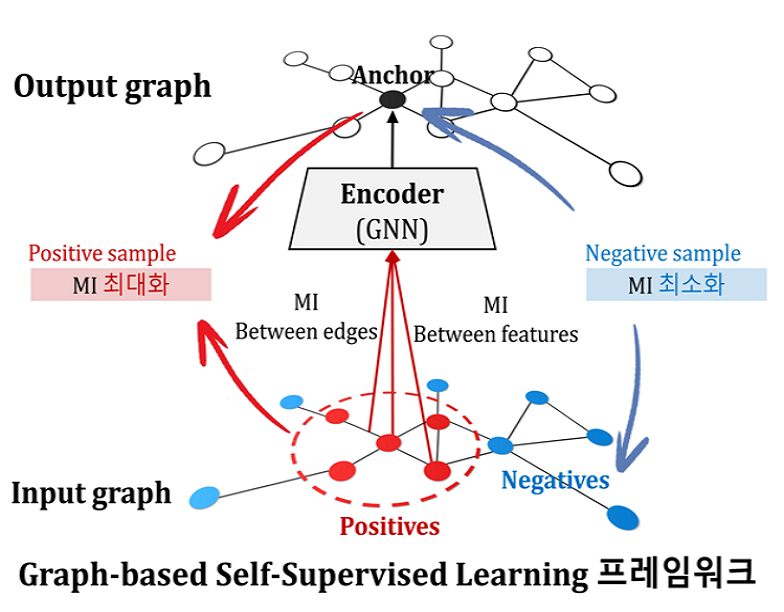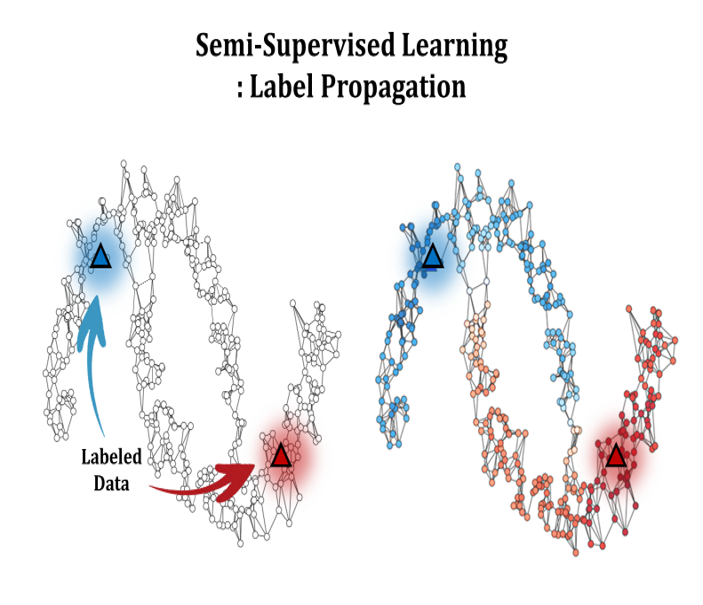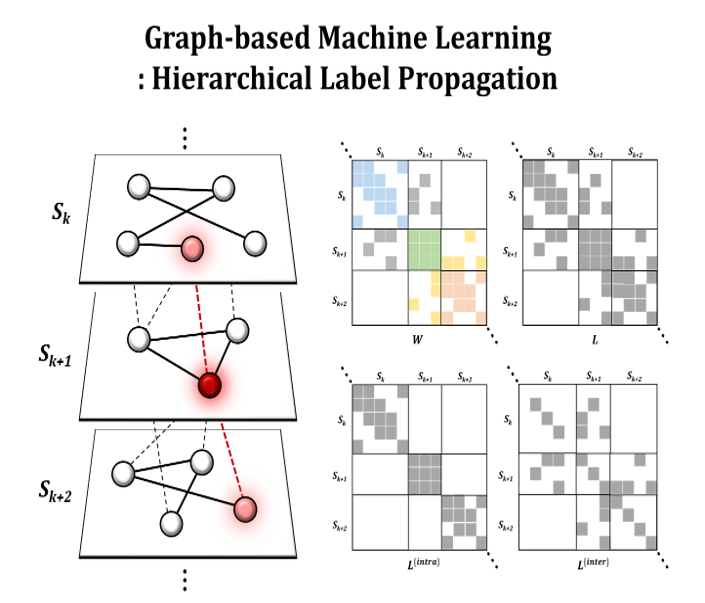
Machine Learning & Data Mining Lab.
Modern society has entered the ‘Era of Artificial Intelligence’. In fields such as ‘Healthcare’, ‘Engineering’, ‘Business’, and the ‘Sciences’, large-scale datasets containing millions of records and thousands of fields are increasingly common. Indeed, as data volumes grow exponentially each year, uncovering hidden patterns or extracting valuable insights from these massive datasets has become a critically important issue in both academic and practical contexts. In this “Big Data” environment where “Machine Learning And Data Mining” is used to extract valuable knowledge and information, and further developed into “Artificial Intelligence” that can be applied across industries and society experts.
In response to this need, our laboratory actively conducts research on developing machine learning algorithms and applying them across diverse industrial domains to advance AI technologies. To achieve this, we comprehensively utilize a wide range of theoretical foundations such as multivariate data analysis, machine learning, deep learning, optimization, statistics, and mathematics to effectively solve the various complex problems arising in multiple fields.
Research projects in our lab use theories and techniques from the intersection of computer science, statistics, and mathematics, including foundational ideas from algorithms, artificial intelligence, multivariate data analysis, Bayesian estimation, and computational statistics (from statistics), and optimization and probability theory (from mathematics).
Machine learning and pattern recognition, in particular, are central to our research, providing both a sound theoretical basis and a practical framework for developing useful data analysis algorithms.
Research activities in our lab range across areas as different as hospital fraud detection, direct marketing in CRM, oil price prediction, protein function prediction in bioinformatics, etc. We hope you find our web-site useful and encourage you to explore its contents (publications, courses, seminars, and other information).
Highlighted Achievements
[2025.07.17] 아주의대, 혈액기반 신경퇴행성 질환 예측 AI 기술 개발
신현정 교수의 머신러닝 & 데이터마이닝 연구실 출신 박성홍, 김주현, 이동기 박사 및 박사과정의 연구 성과

아주대의료원은 아주의대 생리학교실 우현구 교수팀이 혈액 속 단백질 정보만으로 신경퇴행성 질환을 예측할 수 있는 인공지능(AI) 기술을 개발했다고 17일 밝혔다. 연구팀이 개발한 AI 모델 ‘PPIxGPN(Protein–Protein Interaction-based eXplainable Graph Propagational Network)[Paper]’은 기존의 침습적이고 고비용인 뇌척수액 검사나 영상 기반 진단법의 한계를 극복하고 혈액 검사를 통해 신경퇴행성 질환의 조기 진단과 진행 예측이 가능하다는 점에서 의의가 크다.
[메디팜헬스]
Research Areas
Theory
Machine Learning or Statistical Learning Algorithms
- Self-Supervised Learning
- Contrastive Learning
- Negative Sampling Strategy
- Generative Diffusion models
- Denoising Diffusion Probabilistic Models(DDPM)
- Score based Diffusion models
- Diffusion Domain Adaptation
- Semi-Supervised Learning
- Graph-based SSL
- Transductive Learning
- Graph-based Deep Learning
- Graph Neural Network (GNN)
- Graph Convolutional Networks (GCN), etc.
- Kernel Methods
- Support Vector Machines (SVM)
- Independent Component Analysis (ICA)
- Kernel Principal Component Analysis (PCA), etc.
- Connectionist Methods
- Feed-Forward Neural Networks
- Autoencoders
- Self-Organizing Map (SOM), etc.
- Ensemble Learning
- Bagging & Boosting
Applications
Machine Learning Methods in Various Fields
- BioMedical Informatics
- DNA/RNA/Protein Sequence Analysis
- Protein Function Analysis
- Key Gene Identification
- Drug Repositioning
- Disease Causality
- Financial Engineering
- Stock and Futures Trading System
- Customer Relationship Management
- Fraud Detection
- Customer Pattern Analysis
- Online Review Text Mining
- Inference on History
- Genealogy Analysis
- Criminal Science Investigation
- Crime-Suspect Inference
- Voice Phishing Text Mining




Highlighted Project

치매 정밀의료 및 진단 다각화를 위한
인공지능 모델 개발
National Research Foundation of Korea (NRF)

보이스피싱 정보 수집·가공 및
빅데이터 기반 수사지원시스템 개발
Institute for Information & communication Technology Planning & evaluation (IITP),
Korean National Police University (KNPU)

글로벌 뉴스 기반 공급망 위기 감지
조기경보 알고리즘 연구
Korea Institute of Science and Technology Information (KISTI)

VOCs 구성성분 종합분석을 위한
데이터 처리 시스템 개발
HYUNDAI NGV